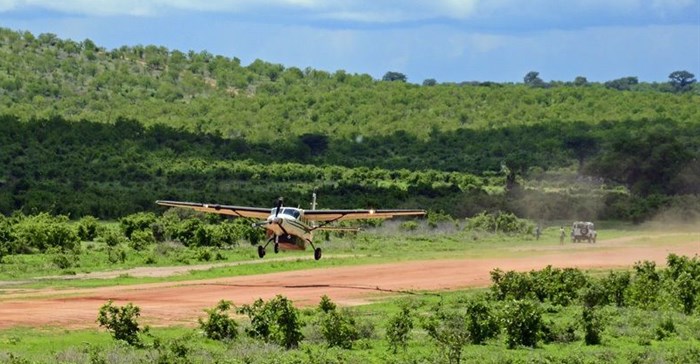Tanzania tour operators lose hope

During the 2018/19-budget session, Parliament amended the fifth schedule of the East African Community Customs Management Act 2004 in order to provide import duty exemption on various types of motor vehicles for the transportation of tourists.
Expectations were high that licensed tour operators, as from July 1, 2018, would have started importing motorcars, sightseeing buses, and overland trucks duty-free, as a critical measure to spur development of the tourism industry.
Tourism is a key sector of the economy as it is the country’s largest foreign exchange earner raking in over $2bn annually, equivalent to 17% of the national GPD, official data indicates.
But nearly six months later, the exemption has turned out to be an empty promise, as the government is still dragging its feet, prompting the Tanzania Association of Tour Operators (TATO) to seek clarification.
TATO chief executive officer, Sirili Akko, recently wrote a letter to the Minister of Finance, arguing that some tour operators were complaining about being subjected to the import duties and that some of their vehicles were stuck at ports over controversial import duty. "It is from this backdrop that TATO decided to write to you, seeking clarification on this particular issue. Does it mean that the exemption hasn’t been affected?"
Import duty exemption necessity
The chairman of the association with over 300 members across the country, Wilbard Chambulo, said his members are caught in a catch-22 after having discarded a number of old vehicles, expecting to import the duty-free ones ready for transporting tourists in the forthcoming high season due to start in mid-December 2018. "Most of us are stranded as the government is silent on the import duty exemption. We just want a word from the government whether the commitment was either false or real," explained Chambulo.
TATO believes that the well-thought objective to waive import duty on various tourist vehicles was born out of interest of the fifth phase government to stimulate development of the tourism industry.
Proposing the import duty exemption on various tourist vehicles in the 2018/19 National Budget in Parliament, the Finance Minister, Phillip Mpango, said a measure was critical for stimulating the development of the multi-billion dollar tourism industry. "I propose to amend the fifth schedule of the East African Community Customs Management Act 2004, to provide import duty exemption on various types of motor vehicles for transportation of tourists."
He said the objective of the measure was to promote investments in the tourism sector, improve services, create employment, and increase government revenues.
Tax exemption offers relief
The TATO chief said members of the association were moved by the state’s decision to scrap the import duty, justifying that the tax exemption was a sigh of relief as it would save them $9,727 for each imported tourist vehicle. "Imagine before this relief, some tour operators used to import up to 100 new vehicles at a go and paid $972,700 in import duty alone. Now this money will be invested expanding a company in a bid to create more jobs and revenues," explained Chambulo.
It is understood that TATO had fought consistently for the promise to be met. When the assembly approved the exemption, TATO members were grateful that the government was considerate enough to their outcry, terming the move as a win-win deal.
Available records indicate that tour operators in Tanzania are subjected to 37 different taxes, including business registration, entry fees, fees for regulatory licenses, income taxes, and annual duties for each tourist vehicle.
Streamlined taxes needed
The TATO boss argued that the contentious issue is not only how to pay myriad taxes and make profits, but also the modality and time spent in complying with intricate taxes. "Tour operators need streamlined taxes to ease compliance, because the cost of compliance is so high and as such it inhibits voluntary compliance."
Indeed, a study on the Tanzanian tourism sector indicates administrative burdens of completing license taxes and levy paperwork place a heavy cost on businesses in terms of time and money. A tour operator, for instance, spends over four months on completing regulatory paperwork. Tax and license paperwork consumes a total of his or her 745 hours per year.
The joint report by the Tanzania Confederation of Tourism (TCT) and BEST-Dialogue shows that an average annual cost for personnel to accomplish the regulatory paperwork per each local tour operator stands at Tsh 2.9 million ($1,300) per year.
Tanzania is estimated to be home to over 1,000 tour companies, but official data shows that there are as few as 330 formal firms complying with the tax regime, which is likely to be due to complexities of compliance. This means that there could be 670 briefcase tour firms operating in Tanzania. Going by the annual license fee of $2,000, it means the Treasury loses $1.34m annually.
Single payment systems beneficial
However, the finance minister also promised through the budget speech that the government was to introduce a single payment system that would enable businessmen to pay all taxes under one roof in a bid to offer them a hassle-free tax compliance.
Mpango also scrapped various fees under Occupational, Safety and Health Authority (OSHA) such as those imposed on application forms for registration of workplaces, levies, fines related to fire and rescue equipment, compliance license, and consultancy fees of Tsh 500,000 ($222) and 450,000 respectively ($200). "The government will continue reviewing various levies and fees imposed by parastatal institutions and agencies with a view to improving the business and investment environment."
Source: eTurboNews






